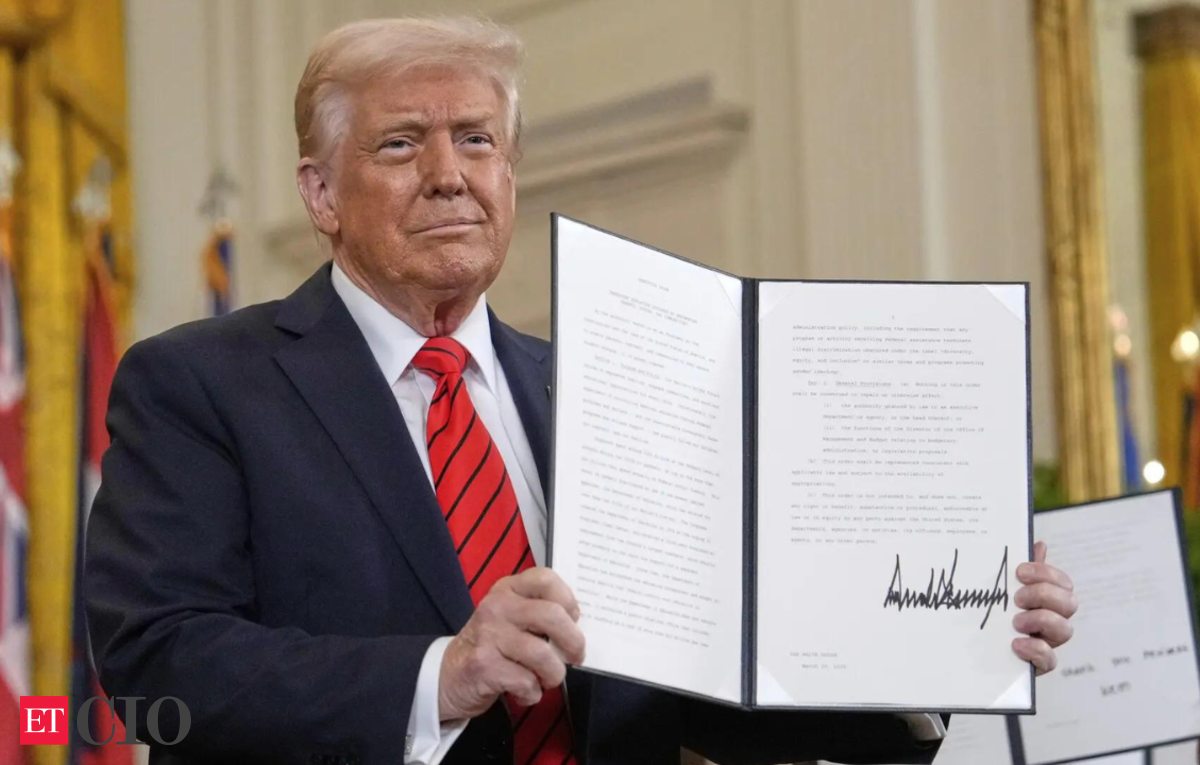Trump's call for AI deregulation gets strong backing from Big Tech

In a landscape increasingly defined by technological advancement, a significant debate has emerged regarding the regulation of artificial intelligence (AI). Major tech firms are actively lobbying the administration of President Donald Trump to ease the existing rules governing AI development, asserting that such deregulation is crucial for the United States to maintain its competitive edge against China. This push comes in the wake of generative AI's rapid evolution, which initially prompted governments worldwide to establish safeguards as tech companies swiftly integrated AI into their products.
Since assuming office in January, the Trump administration has prioritized the acceleration of AI development, even at the expense of addressing potential risks such as model hallucinations, deepfakes, and job displacement. Vice President JD Vance conveyed this stance at a recent AI summit in Paris, stating that "The AI future is not going to be won by hand-wringing about safety." This message has caused unease among international partners, particularly in Europe, which has championed the EU AI Act as a benchmark for responsible AI governance.
However, faced with the United States' shift in direction, European officials are now reevaluating their approach, focusing more on investment and innovation rather than strict safety measures. David Danks, a professor of data science and philosophy at the University of California San Diego, predicts a global reduction in regulatory efforts, noting that this trend is evident in both the United States and Europe.
Tech companies are seizing this regulatory retreat as an opportunity to develop AI technologies that they believe were unduly restricted under the Biden administration. One of President Trump's initial executive actions involved dismantling Biden's policies, which had proposed moderate guardrails for powerful AI models and instructed agencies to prepare for oversight. Karen Silverman, CEO of AI advisory firm Cantellus Group, observes that "It's clear that we're taking a step back from that idea that there's going to be a coherent overall approach to AI regulation."
The Trump administration has invited industry leaders to contribute their policy perspectives, emphasizing the need for the US to remain the "undeniable leader in AI technology" with minimal constraints on investors. These industry submissions will inform the White House's AI action plan, expected to be released this summer. The responses received thus far share a common theme: the assertion that China poses an existential threat that can only be countered by allowing companies to operate freely, unburdened by regulation.
OpenAI's submission stands out for its stark comparison with China, highlighting DeepSeek, a Chinese-developed generative AI model created at a fraction of the cost of American models, to underscore the competitive challenge. According to OpenAI, American AI development should be "protected from both autocratic powers that would take people's freedoms away, and layers of laws and bureaucracy that would prevent our realizing them." AI analyst Zvi Mowshowitz suggests that OpenAI's ultimate goal is to prevent the federal government from regulating AI and to prohibit individual US states from doing so as well.
OpenAI, currently involved in litigation with the New York Times over the use of its content for training AI models, also argues that restricting access to online data would hand the AI advantage to China. "Without fair use access to copyrighted material...America loses, as does the success of democratic AI," OpenAI stated. Conversely, a response submitted by a group of Hollywood celebrities, including Ben Stiller and Cynthia Erivo, rejected this notion, reflecting the entertainment industry's complex relationship with AI technology.
Meta, in its response, promoted its open Llama AI model as crucial to the fight for American technological supremacy. "Open source models are essential for the US to win the AI race against China and ensure American AI dominance," the company asserted. CEO Mark Zuckerberg has even proposed retaliatory tariffs against European regulatory initiatives. Google's input focused on the need for infrastructure investment to support AI's significant energy demands. Like its competitors, Google opposes state-by-state regulations in the US, arguing that they would undermine America's technological leadership.
Despite the strong push for minimal oversight, industry experts caution that generative AI carries inherent risks, regardless of government regulation. David Danks warned that "Bad press is universal, and if your technology leads to really bad outcomes, you're going to get raked over the public relations coals," emphasizing that companies must proactively mitigate these dangers.











